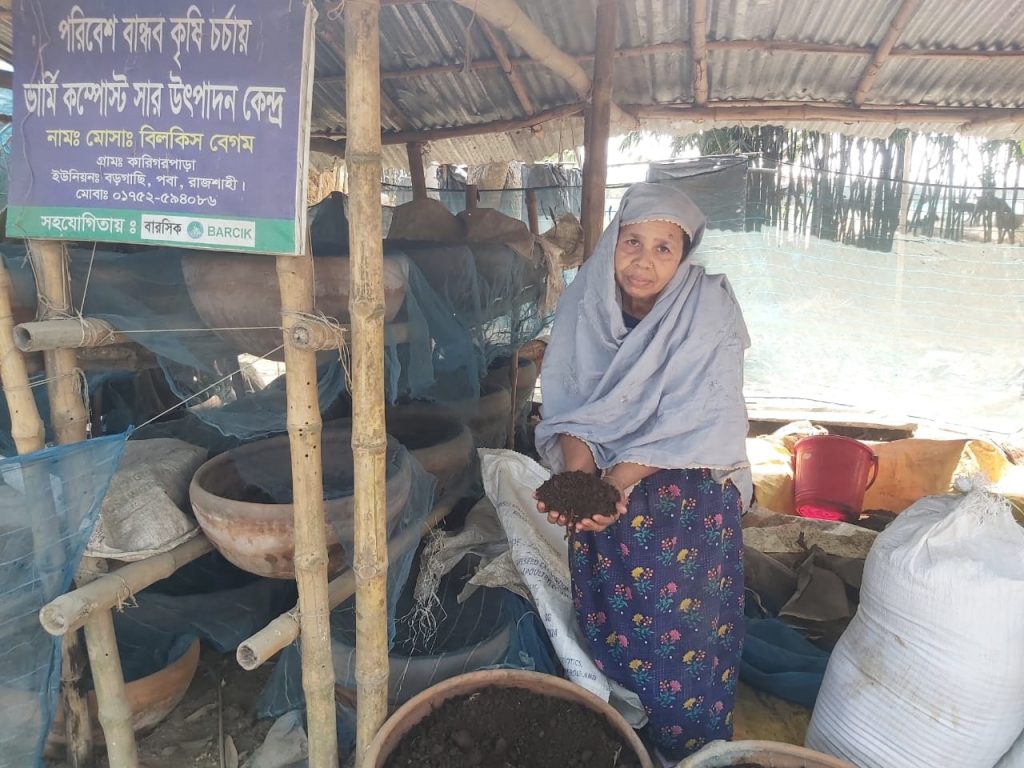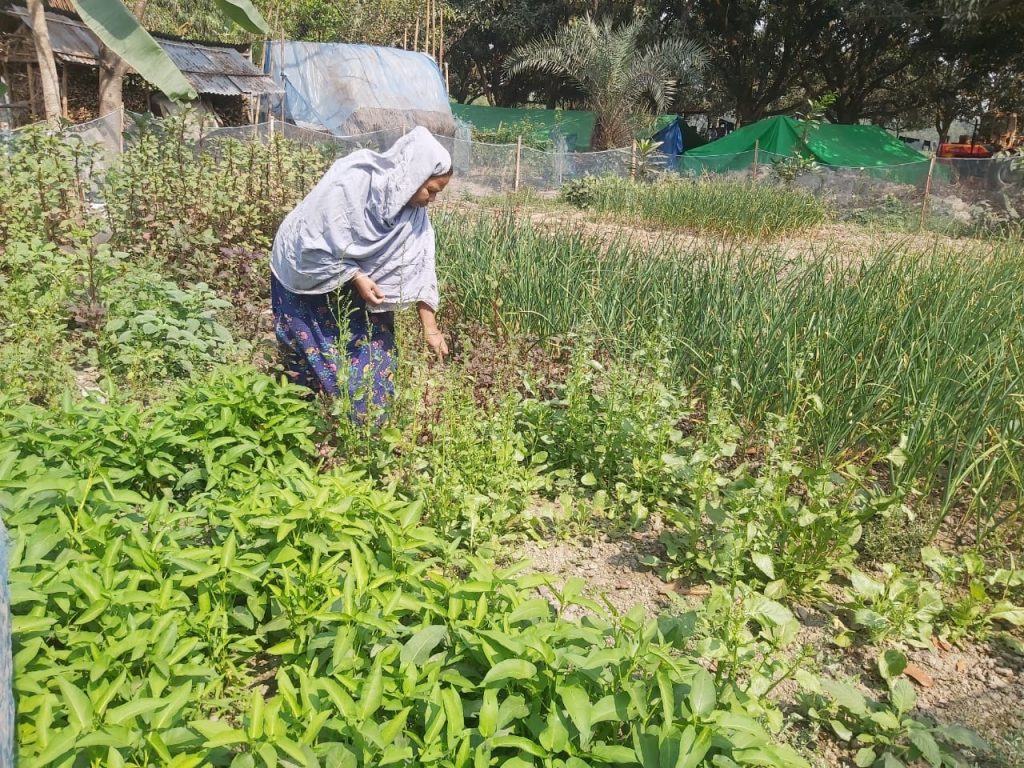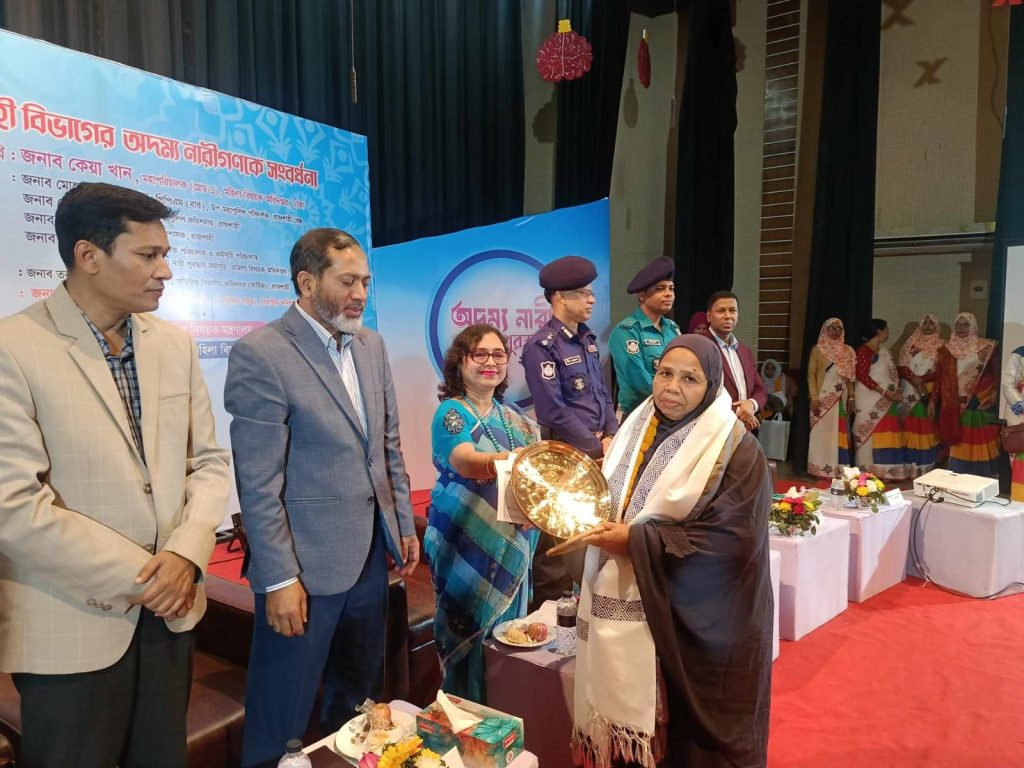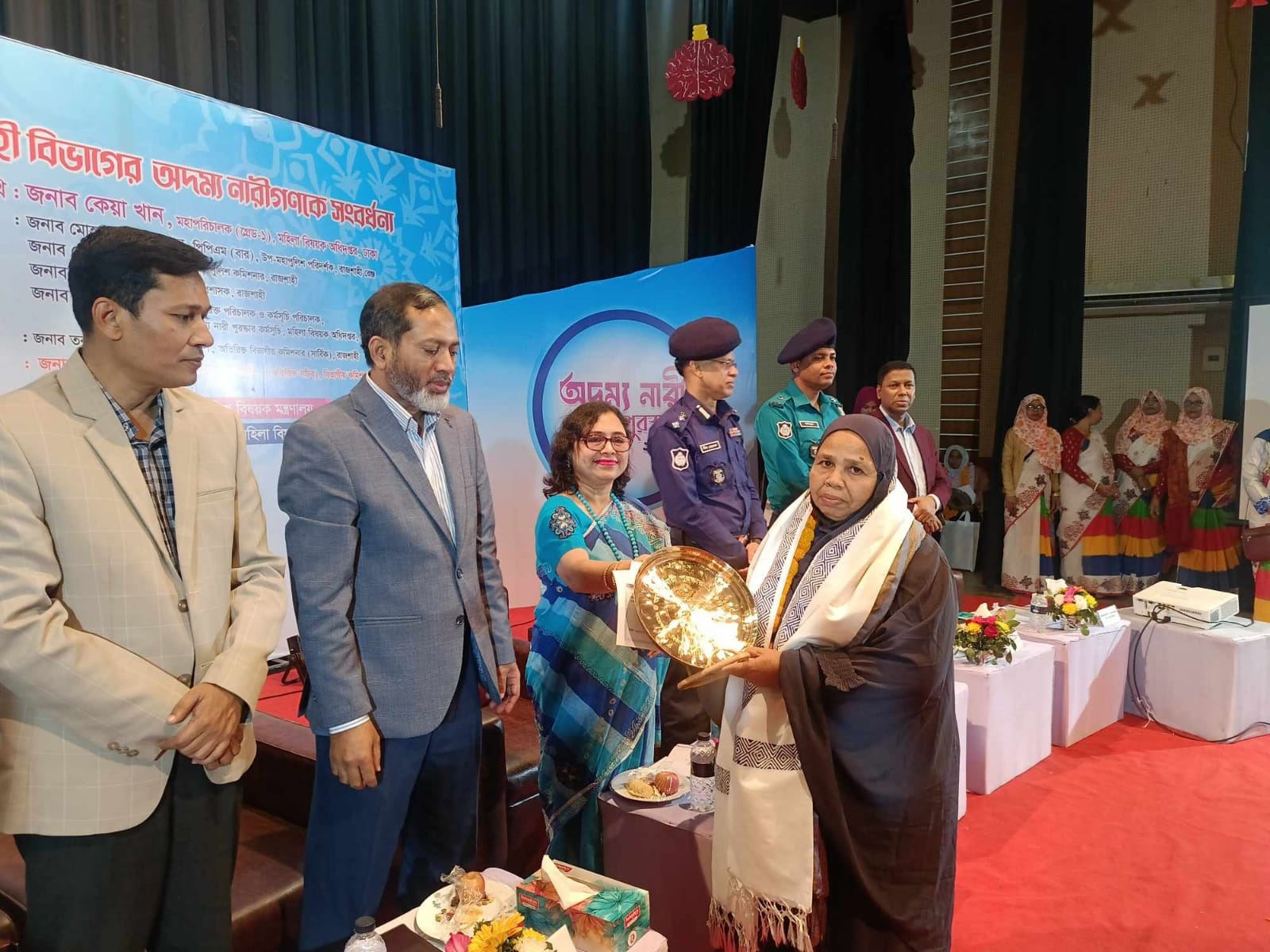Bilkis Begum Gains respect and economic solvency through Agroecological practices
Bilkis Begum Gains respect and economic solvency through Agroecological practices
Bilkis Begum Gains respect and economic solvency through Agroecological practicesBilkis Begum Gains respect and economic solvency through Agroecological practicesBilkis Begum Gains respect and economic solvency through Agroecological practices
By Amreto Sarkar from Rajshahi
This is the story of a determined woman who with perseverance and inspiration succeeded to bring economic solvency in her poverty stricken family. It is the story of Bilkis Begum (55) from Karigor Para village in Paba Upazila, Rajshahi who she has restored financial stability to her family through practicing agroeology. Despite being an elderly woman, she has set up four vermicompost production farms and cultivates chemical-free vegetables on her small piece of land throughout the year. This does not only meet her family’s needs but also generates additional cash from selling surplus produce.

Her Struggles
After her son got married in 2015, he distanced himself from the family. Still, her husband, Md. Rashid Khan (60), managed to sustain the household with his earnings as an agricultural laborer. However, tragedy struck that in the same year while cutting bamboo near a pond, Rashid Khan fell and broke his leg. As the family’s sole breadwinner, his injury led to financial hardship. Their savings were minimal, and whatever little left they had spent on his treatment. Beside of this struggle, her husband began experiencing severe abdominal pain. A medical checkup revealed a serious liver disease. Bilkis Begum took up domestic work in a neighboring village with desperate need of money for his treatment. Even after buying medicine for her husband, there were days when she had to endure hunger. While working, she constantly thought of additional ways to earn. She even had to borrow BDT one million 17 different organizations and mortgaged their two bighas of land to solve her health problem. The burden of loan repayments became overwhelming. Though her husband recovered somewhat, he was unable to work anymore.
The Turning Point
While continuing her domestic work, Bilkis Begum also did some quilt tailoring to earn extra income. In 2016, a local NGO came to provide training on vermicompost production. With a desire to change her circumstances, she eagerly participated in the training. After the training, she invested her savings 200 BDT to buy a clay pot and received 500 earthworms from the NGO. Her first batch of vermicompost produced five kilograms, which she used in her vegetable garden. The second batch yielded ten kilograms, and after seeing the improved growth in her garden, a neighbor bought the compost for BDT 150. As she continued producing compost, her earthworm population multiplied. Gradually, she saved money and expanded her production to five clay pots.
At this point, she connected with the Bangladesh Resource Center for Indigenous Knowledge (BARCIK). Seeing her potential, BARCIK helped her to build a large tin-roofed shed and provided 50 clay pots for vermicompost production. With this support, she was able to produce five maunds (about 200 kg) of vermicompost every 20 days. From then on, she never had to look back. Now, she earns BDT 25 to 30 thousands per month selling her vermicompost. She has repaid BDT 9 lakh of her debt to 15 organizations and reclaimed her mortgaged land, which she now cultivates using only vermicompost. Seeing her success, other farmers in the area have started purchasing compost from her.

Beyond her own success, she has helped 35 women in her community to learn vermicompost production. When she receives large orders, she collects compost from them and supplies it in bulk, ensuring a shared income for all. A fellow villager, Mosammat Renuka Begum (45), said, “I started with five clay pots and 1,000 earthworms from Bilkis Begum. Now, I have 50 pots producing compost. When we get big orders, we sell together and share the earnings.”
In addition to her compost farm, Bilkis Begum cultivates seasonal vegetables year-round on four decimals of fallow land beside her house, using only organic methods. She controls pests with neem extract, cow urine, ash, and mahogany seed extracts. This not only provides fresh vegetables for her family but also allows her to sell surplus produce. Many farmers in her area have now adopted vermicompost and organic farming, thanks to her influence.

Her Recognition
Bilkis Begum’s inspiring journey has been featured in leading national newspapers, significantly boosting her compost sales. In 2024, she received the Joyeeta Award as the district’s Best Female Entrepreneur, and in 2025, she was honored with the Divisional Indomitable Woman Award. These recognitions have motivated her to continue her work with even greater dedication. She said, “With determination, anything is possible. I want to support as many rural women as possible. I have no doubt that with a little help, they can succeed. I want to uplift them through my work.”

